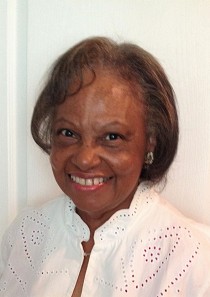E. Yvonne Moss
School: Emory University Candler School of Theology
Major: Masters of Divinity

I pursued a career in college teaching to serve the interests and needs of my students as well as to develop and fulfill my own goals as an academic. I have never been motivated primarily by financial gain; but, wanted a career that would also allow me to help improve the lives of others and my community. A car accident severely injured my back, jeopardizing both my career and my ability to make a living. Adaptive Workplace Technology (AWT) made it possible to get the education needed (PH.D.) to teach in American colleges and universities for over twenty-five years.
In my early fifties, health problems caused me to be off work for two years. By the time I returned to work, the occupational structure of the profession had changed. Whereas 85% to 95% of the faculty were full-time throughout my over two decades of college teaching, now only 20% to 30% of many department faculties were full-time. Adjunct work was not sufficient; so, I needed to find another full time career to take care of myself.
I was accepted at Candler School of Theology at Emory University; and, I am excited by the prospects of a new career in the ministry. I am also fortunate to work part-time as a grant writer for the Friendship Center of Holy Comforter Episcopal Church. The Friendship Center provides a day program of art therapy, employment and training in organic gardening, and wellness for adults marginalized by mental health challenges and poverty. AWT is critical to successfully engage in both these endeavors. An American with Disabilities Act (ADA) program administered through the Georgia Vocational Rehabilitation Agency provided the accommodation equipment I needed to be able to work and go back to school. Without it, I would not be able to work or go back to school; and, I would face an insecure future. With this accommodation, I will be able to use my education and experience to continue to serve individuals and organizations in my community while being able to live an independent and comfortable life. I was a pre-school teacher and administrator when I first got out of college. I was a college professor for over twenty-five years. Now, I look forward to a continued life of service in the ministry. All made possible because of adaptive workplace technology.
Essay: Varier Gravity Balans Chair with the Adjustable Dual Surface Corner Workstation
Adaptive Workplace Technology (AWT) has made the biggest difference in my life as a disabled person. Specifically: the, 1) Varier Variable and Gravity Balans Chairs; along with the, 2) Adjustable Dual Surface Corner Workstation--made the difference between being able to: get an education, work, and take care of myself--despite a debilitating back injury--or having to be reliant on others for care. The issue is not only one of financial independence; but, the dignity and sense of self-worth that come from engaging in challenging and fulfilling work while contributing to your community and society.
In 1988, a car accident left me with a permanent lower back injury. At the time, I was an Assistant Professor of Political Science at the University of Massachusetts/Dartmouth while finishing my dissertation for a Ph.D. For three weeks after the accident I was bedridden. After eight months of recuperation--slowly regaining my strength--I had a relapse and spent two months in a hospital bed with home nursing care. But, I finished my dissertation from that hospital bed. And, the first time I left my home in two months was to attend graduation exercises where I was awarded the Ph.D. degree. Although I used a cane to walk up to the stage, I was determined to ditch the cane and walk to receive my degree unaided. What a wonderful moment! Now I had to face a future of living and working with a permanent back injury and disability. I could not sit for more than 30 to 40 minutes in regular home or office chairs without terrific pain, difficulty walking when I got up, and increasingly long periods of bed rest to recuperate. What to do?
The answer--although I did not know the terminology at the time--was and is: AWT. The Varier Balans Chairs and first, the Global Electric Adjustable Dual Surface Sit-Stand Corner Desk; then, the Adjustable Dual Surface Corner Workstation were the answers to a successful career not only in college teaching, but for jobs in research, public policy, and community service. I could not have accomplished what I have without this equipment. If I had any doubts about this, these were vanquished in 2014 when I tried to use regular office chairs for a part-time position as a grant writer for the Sickle Cell Foundation of Georgia. I re-injured my back; and, I had to spend 15 hours a day in bed. Eventually, I had to take a medical leave because I could not do the job without an accommodation.
Georgia Vocational Rehabilitation Agency (GVRA) provided the AWT equipment needed, made available under a federal ADA program that assists the disabled with accommodations for work. The Gravity Balans Chair and the Adjustable Corner Workstation, made it possible to get a part-time job grant writing for the Friendship Center of Holy Comforter Episcopal Church and to return to school for a second career in the ministry (Candler School of Theology). There is no way I could either do my job or pursue my call to the ministry without this special equipment.
This equipment makes possible: fulfilling work, economic self-sufficiency, and the opportunity to use my God-given gifts in service to my community. There really are no words to truly express the magnitude of this difference in my life. Adaptive Workplace Technology is so important to people who are disabled but who want to work and live thriving, productive lives. The value of AWT for disabled children and youth in schools and for adults in the workplace is priceless.